#sultan alp arslan
Explore tagged Tumblr posts
Text
Malazgirt’ten 30 Ağustos’a: Türk Milletinin Zaferler Yolu
Cumhuriyetin ilanını kutlamak için 1924 yılında Edirne Türk Ocağı binası önünde toplanan Edirne Türk Ocağı üyeleri, büyük bir coşku ve kararlılıkla Cumhuriyetin ilk yılını kutluyor. Bu tarihi an, Cumhuriyetimizin ilk yıllarında halkın büyük heyecanını ve milli ruhun gücünü yansıtıyor. Cumhuriyetimizin ilk yıllarında Edirne Türk Ocağı’nın taşıdığı önem, Malazgirt’ten 30 Ağustos’a uzanan…
#30 Ağustos#Anadolu’nun fethi#Büyük Taarruz#Cumhuriyet#Edirne Türk Ocağı#Malazgirt Zaferi#Milli Mücadele#Mustafa Kemal Atatürk#şehitler#Sultan Alp Arslan#Türk milleti#Türk Ocağı#Türk tarihi#Türk-İslam siyasi egemenliği
0 notes
Text
Malazgirt zəfəri münasibəti ilə bütün Türk dünyasını təbrik edirəm.
1 note
·
View note
Text




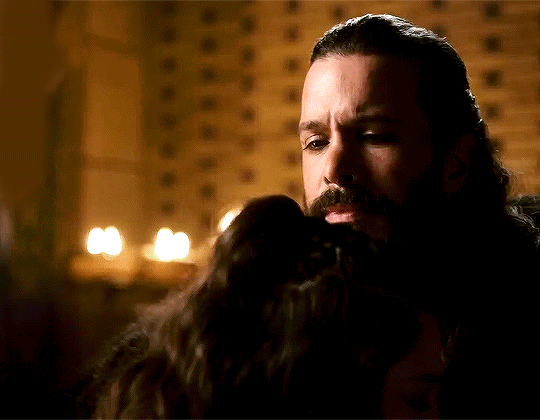
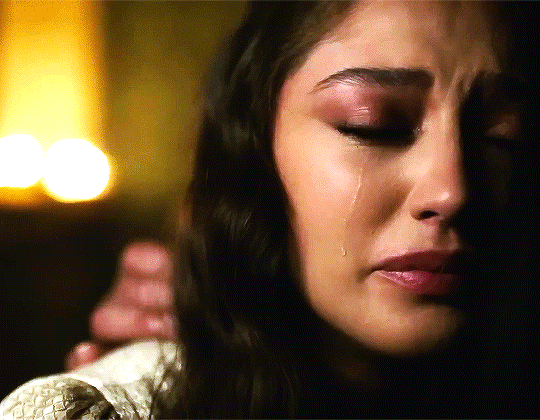

Turns out, the thing that has been catching my attention has been the light inside your eyes. You are God's greatest gift to me.
Alparslan: Great Seljuk Season 2 : Episode 10
#Alparslan: Büyük Selçuklu#Alparslan: Great Seljuk#turkish dizis#turkish drama#perioddramaedit#onlyperioddramas#turkish series#Barış Arduç#Kayra Zabcı#Alp Arslan#Seferiye Sultan#Alparslan#alparslan x seferiye#gifs#*
41 notes
·
View notes
Text
Avs Series - Homepage
Avs Series is a global site for the collection of Islamic and Turkish series like Sultan Abdul Hamid, Kurulus Osman, Alp Arslan Buyuk Selcuklu, Barbaroslar, Destan and other historic series on our website.
2 notes
·
View notes
Text
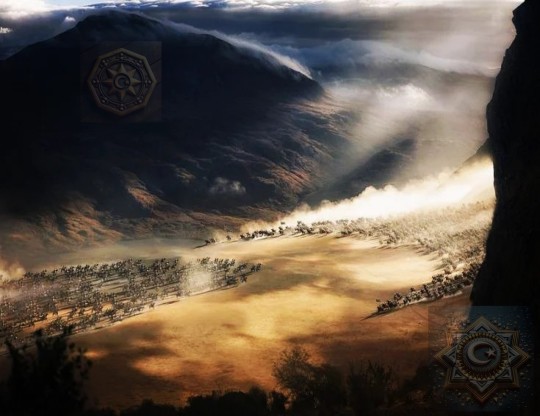
#2200 yıllık Devlet#1400 yıllık Medeniyet#1000 yıllık Hâkimiyet.#Türklerin Anadolu’ya girişinin 953. Yılında Sultan Muhammed Alp Arslan ve Anadolu’yu bizlere vatan yapan tüm ecdadımıza selam olsun#Malazgirt 1071 zaferimiz kutlu olsun.#Size öyle bir vatan aldım ki#ebediyen sizin olacaktır...#1071#sultanmuhammedalparslan#selçuklu#953#ahlat#malazgirt#anadolununfethi#malazgirtzaferi#malazgirt1071#yılı#kutlu#olsun#türkiye#rahmetle#saygıyla#yad#ediyorum#tüm#şehitlerimizi
0 notes
Text
I think it a point worth restating:
The first Muslim claim to Jerusalem is the same claim that the Greek civilization in a Christian form it deposed had. The Yarmuk and Gaugamela have equal legitimacy, if Muslims are the indigenous culture of the region then they supplanted an indigenous culture. If the Greeks they displaced are imperialist colonizers then a religion imposed by soldiers is innately colonialist because it replaced a Christian and Zoroastrian Aramaic and Farsi speaking world with an Arabic Islamic one. Nobody 'voluntarily' adopts a new language, it is always forced by means more or less overtly imperialist, whether or not people have the historical awareness enough to realize this is what happened.
The claim deposed by General Allenby in 1918 at Megiddo was won by the same means by the armies of the Ottoman Sultan, who went against the heirs of Sultan Baibars, eraser of the Crusader states. At the time the three sub-provinces of what would later be termed Palestine were eastern Mamluk zones. As a result of this battle, where the heroic legions of Baibar's successors were butchered by cannons much like they would be again by Napoleon, showing the signal inability of Mamluks to accept the implications of why they were semi-loyal servants of the Ottomans in the first place, the region later merged into Mandatory Palestine became Ottoman territory for 402 years.
And so the question. If winning a battle made Abdulhamid II and the genocidal murder-gang called the Committee of Union and Progress the rightful masters of Jerusalem, why does this only apply to the empire whose conquest unraveled in another conquest and when is the statue of limitations on conquest met?
This is one of the reasons why trying to apply a logic suited to understanding the history of the Americas breaks down very hard in the region where empire begins at the dawn of humankind's experiments in civilization in the hubristic and grandiloquent boasts of the lords of Sumer and Agade of being 'lords of the four corners and all the world.'
Either empires and the identities they spawn as their bastard offspring or legitimate or there's never been any coherent ethnocultural identities in the region, only a sequence of fallen empires and rising and falling religions loosely superimposed into a historical narrative. To grapple with this is to grapple in turn with one of the simplest realities of history. Not every culture comes close to sharing the same narratives or experiences, and projecting the ideal self-image of one culture onto the vastly different experiences when Selim the Grim is a founding father of a 400-year world which was much younger than Ottoman rule of the Balkans, as compared to a world started by James Polk's blundering horde ripping apart the semi-functional and badly wounded Mexico of the Age of Santa Anna.
Some principles, if held to be universal, render entire elements of histories and cultures incoherent and impossible to describe unless one is willing to admit that the history of the Middle East is not that of Europe, or China, or India, or Central Asia, or the Americas, or the Australian continent and that different regions should be treated respectfully, and differently, with awareness the underlying faultlines are also distinct.
#lightdancer comments on history#middle eastern history#islamic history#mamluk history#history of the ottoman empire#point worth noting that Ottomans vs Mamluks had Arabs reduced to serfs at that point and resenting it as they have ever since#they have never accepted that the Seljuks turned them from lords to hewers of wood and drawers of water#no different to how Mexico still resents the loss of Texas and California#though whether or not giving current Texas back to Mexico would be a punishment or not is a different question#a truer history of Arabs as subjects vs lords starts with the Seljuk Sultanate and the Mongol sacking of Baghdad#but that would again require the people who want to defend Islamic history to know anything about it to have those conversations#and that would require them in turn to actually put the effort to find it#and that effort does not and will not exist because it would spoil too many illusions#poor Alp Arslan and Baibars and Selim the Grim and Suleiman the Magnificent#even when the Battles of Actium and Gaixia and Moscow defined history no less in other parts of the world
1 note
·
View note
Text
Alp Arslan, Komandan Terbesar Dalam Sejarah Saljuk
(Arrahmah.id) – Sultan Alp Arslan, penguasa Kerajaan Saljuk Besar, yang mengalahkan tentara Bizantium di Manzikert dan membuka gerbang Anatolia untuk Turki pada 1071, menonjol dengan kepahlawanan, pandangan ke depan, dan strategi perangnya yang unggul selain kenegarawanannya. Sultan Alp Arslan adalah Sultan kedua Kerajaan Saljuk Besar. Ia Lahir dengan nama ‘Adud Al-Dawla Abu Syuja’ Muhammad bin…
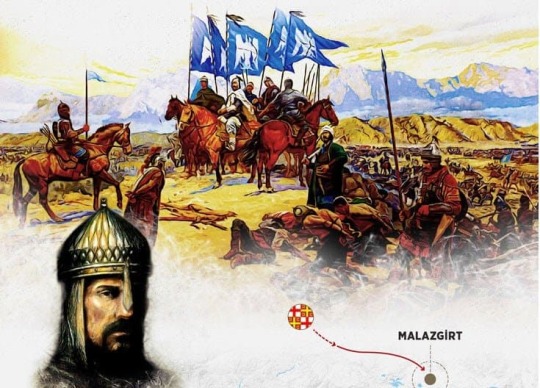
View On WordPress
0 notes
Text
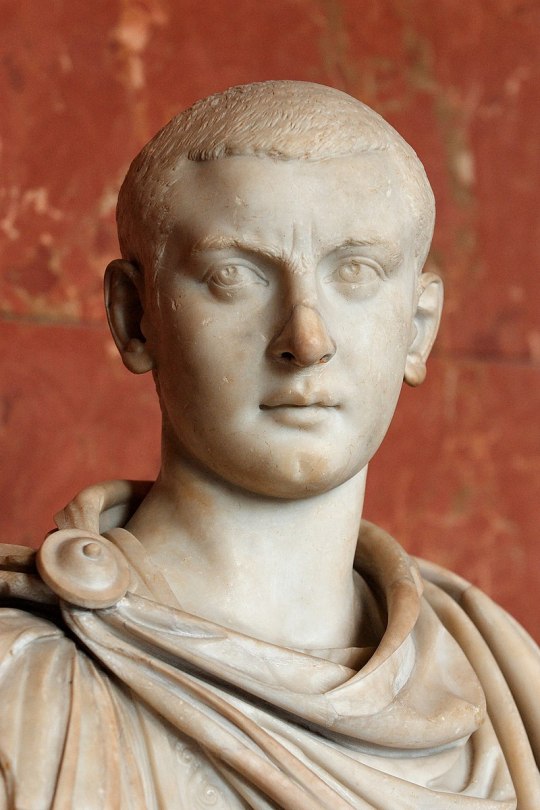
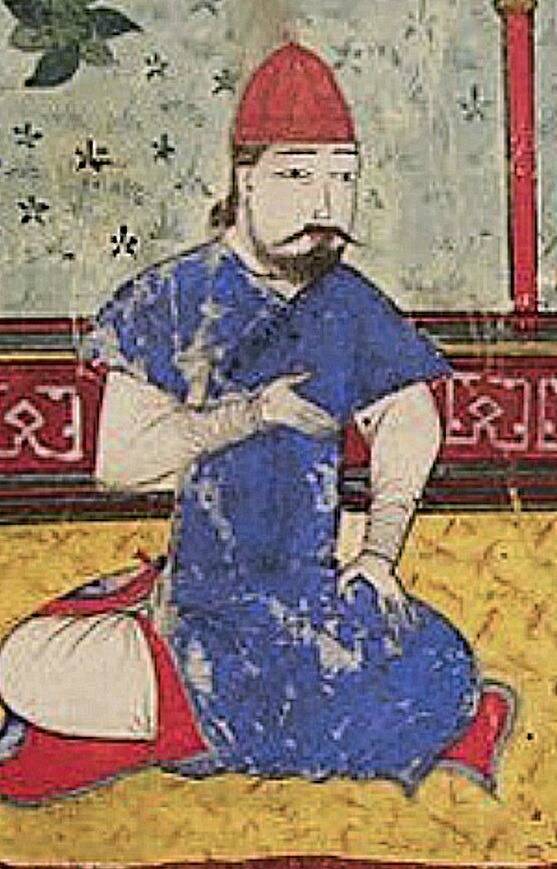
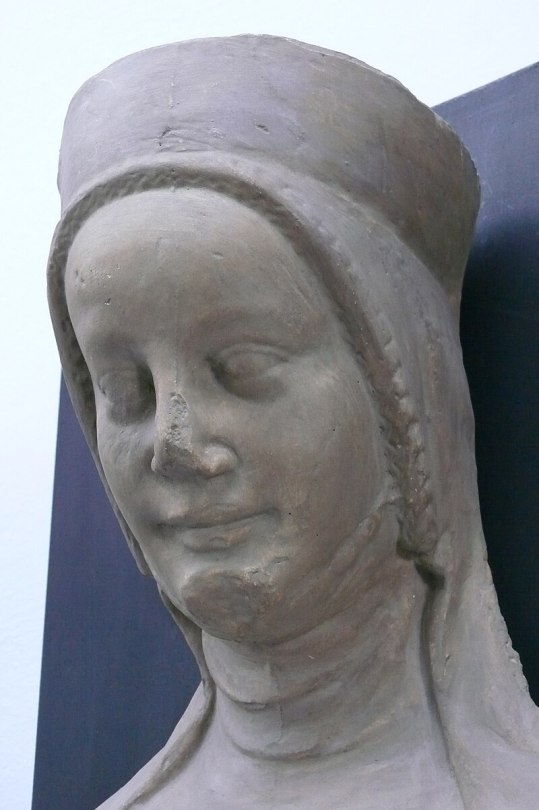

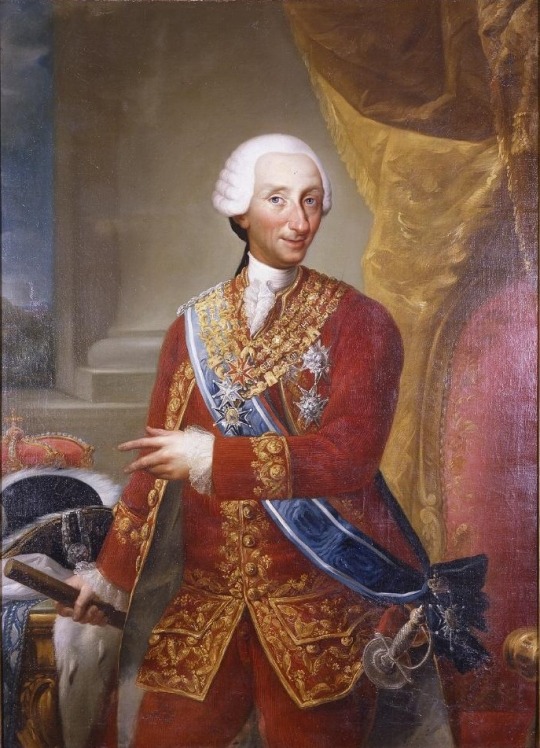

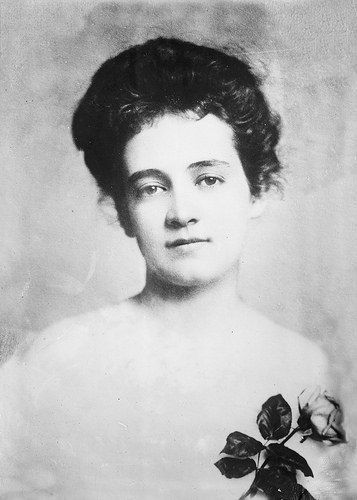

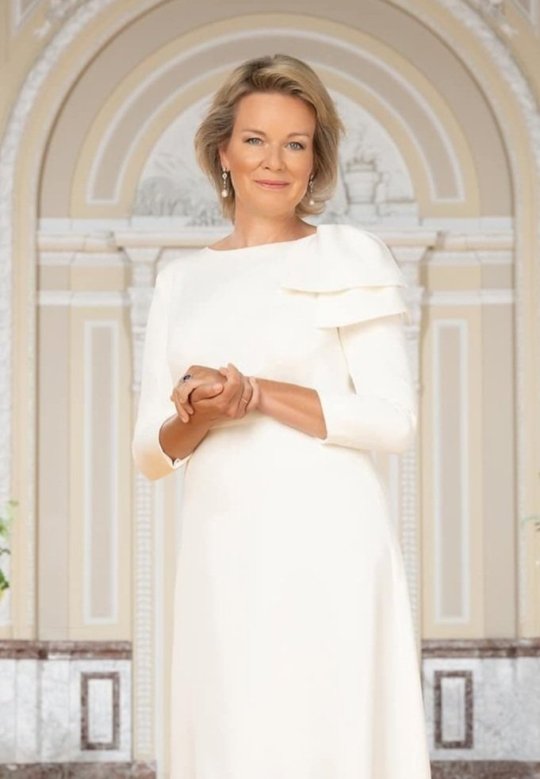
Royal Birthdays for today, January 20th:
Gordian III, Roman Emperor, 225
Alp Arslan, Seljuk Sultan, 1029
Elizabeth of Bohemia, Queen Consort of Bohemia, 1292
Sebastian, King of Portugal, 1554
Charles III, King of Spain, 1716
Ferdinand, Duke of Parma, 1751
Anastasia, Princess of Greece and Denmark, 1878
Sophie, Duchess of Edinburgh, 1965
Mathilde, Queen Consort of the Belgians, 1973
#sophie rhys jones#duchess of edinburgh#queen mathilde#ferdinand of parma#charles iii#sebastian of portugal#elizabeth of bohemia#alp arslan#gordian iii#long live the queue#royal birthdays#princess anastasia#Nonnie May Stewart
5 notes
·
View notes
Text
SİYASETNAME - NİZAMÜ-L MÜLK
“Küfr ile belki amma zulm ile paydâr kalmaz memleket”
Selçuklu veziri Nizamü’l-Mülk...
Yaklaşık 1000 sene önce söylenmiş bu söz SİYASETNAME de yer alır... Selçukluların yakaladıkları başarılarının altında yatan temel gerçek: ilim, hukuk ve güçtür.”
Her şeyin kanlı ve kirli bir iktidar imgesine odaklandığı modern zamanların en netameli kavramalarından biridir siyaset. Modern siyasetin doğası, egemen olma ve sahiplik güdüsünü kışkırtır.
Böyle bir dönemde, ünlü Selçuklu veziri Nizamülmülk’ün kaleme aldığı Siyasetnâmesi daha da çok önem kazanır. Alp Arslan ve Melik Şah’ın saltanat devirlerinde devlet idaresinin zirvesinde bulunan Nizamülmülk, bir tür anayasa sayılabilecek bu eserle yüzyıllar öncesinden bugünün insanına seslenir.
Nizamül Mülk’ün Sultan Melikşah’ın emri üzerine kaleme aldığı ve bütün bölümlerinde kararla liyakat, adalet ve disiplinden bahseden kitap, devlet yönetimi, padişahın uymadı gerekenler, mali yapı , Müslümanları ve devleti bekleyen sahili ve harici tehlikeler konularından bahsetmektedir.
51 fasıldan oluşan kitapta her fasılın açıklaması ve konusuna uygun hikayesi ile daha ilgi ile okumama olanak verdi.
Aslında yazarın kendisi kitabın sonunda ,en güzel şekilde kitabı neden ve nasıl yazdığını açıklamış:
“Yüce sultanımız eseri her okuduğunda dikkati artsın ve şu bendenin kendisine sadakat ve muhabbetinden haberdar olsun. Kendi tecrübesine kulak versin ve daima kendisine bıkkınlık vermeyecek bu eseri mütalaa edip okuyuversin. Zira bu kitap hem bir öğütnâme ve hem hikmetler ve vecizelerle hem de peygamber kıssalarıyla ve hem evliyaların menkibeleriyle, adil padişahların öyküleriyle doludur. Eser gelmişleri yad eder, gelmemişlerden bahseder. Bütün bu hacmine rağmen özet hükmündedir. Adil padişahların siyasetini konusu kılan kitap cehennemi ikaz, cenneti işaret eder.”

5 notes
·
View notes
Text

Diesmal waren wir zu zweit im Theater und wir kamen in den Genuss einer Uraufführung im Stadttheater Gießen. Es wurde „Alp Arslan“, eine Oper von Richard van Schoor gespielt. Das Stück versteht sich als ein Requiem für Aleppo mit einem Libretto von Wilem Bruls. Es ist die erste abendfüllende Oper, welche im Auftrag des Stadttheater Gießen geschrieben wurde. So eine gewisse Nervosität war bei mir schon zu spüren, da es ja eine Uraufführung war. Die Musik war schon etwas moderner und ich fragte mich schon vorher, ob mir die Musik gefallen könnte, ob ich dem gesungenen Wort richtig folgen kann, oder ob es mir so schwerfällt wie früher z.B. beim „Freischütz“. Werde ich der Handlung folgen können und wie sehr spricht mich das Stück an, ist das Bühnenbild zu modern und passen die Kostüme? Dies alles sind Fragen, die ich mir schon vor der Oper gestellt habe und auf die ich im laufe des Abends antworten bekommen habe. Fange ich mal bei der Musik an. Am Anfang habe ich mir etwas schwergetan, zum einen mit den Dissonanzen und der Falsettstimme von Denis Lakey als Loulou, dem Eunuchen und mächtigen Berater von Alp Arslan dem Sultan von Aleppo, gespielt von Daniel Arnaldos. Ich hatte ich mir am Anfang etwas schwer getan mit Loulou, nicht, weil ich das was er gesungen hatte nicht verstanden habe, sondern weil mein Gehör sich einfach an die Stimme gewöhnen musste. Der im Sterben liegende Ridwan war etwas schwer zu verstehen, da das Orchester etwas lauter war als er. Was aber irgendwie auch klar ist, da Ridwan ja im Sterben lag. Ich fand ihn ein wenig zu leise, Heike fand es klar und verständlich, da sind wir wieder bei der Bewertung. Jeder empfindet es anders und Musik, im besonderen Opern, kann man nur schwer objektiv beurteilen. Man hat immer eigene persönliche Empfindungen und dies wird auch immer so bleiben und es ist gut so. Rena Kleifeld als Alp Arslans Großmutter und Marie Seidler als seine Mutter hatten für mich teilweise eine sehr starke Bühnenpräsenz. Glasklare Stimmen obwohl sie auch recht hohe Stimmen hatten. Egal bei wem, ich konnte immer den Text sehr gut verstehen, ohne dass ich ständig auf die Bildschirme sehen musste. Es war für mich einfach schön zu hören und auch die Mimik der Personen auf der Bühne waren sehr gut zu erkennen. Bei Loulou war ich am Schluss fast der Meinung, dass da leichte Tränen zu sehen waren. Auch der Chor des Stadttheaters ist einfach nur schön zu hören und hat eine wunderschöne Klangfarbe, die mich wirklich sehr beeindruckt hat. Stadttheater Giessen ALP ARSLAN (UA) Oper von Richard van Schoor | Libretto von Willem Bruls | gefördert durch das Hessische Ministerium für Wissenschaft und Kunst Musikalische Leitung: Jan Hoffmann / Martin Spahr Inszenierung: Cathérine Miville Bühne und Video: Marc Jungreithmeier Kostüme: Monika Gora Chor: Jan Hoffmann Alp Arslan: Daniel Arnaldos Loulou, Eunuch: Denis Lakey Bent Yaghisiyan (Mutter): Marie Seidler Großmutter: Rena Kleifeld Tughtakin, Emir von Damaskus: Tomi Wendt Ridwan (Vater): Tuncay Kurtoglu Mit: Chor des Stadttheater Giessen / Philharmonisches Orchester Giessen Foto: Rolf K. Wegst Nutzungsrechte beim Urheber Komme ich nun noch mal zur Musik. Das mit den gewollten Dissonanzen habe ich ja schon erwähnt. Aber ein besonderes Highlight waren die syrischen Musiker, die dem Ganzen eine besondere Note gegeben, und die Musik des philharmonischen Orchesters wunderbar ergänzt haben. Wobei mir da vor allem der syrische Sänger in Form von Ghays Mansour sehr gut gefallen hat, insbesondere als er oben im Rang stand und es so geklungen hatte, als würde er auf einem Minarett stehen. Das hat wirklich einen besonderen Touch gehabt. Was die Handlung betraf, konnte ich dem ganzen sehr gut folgen, auch wenn ich die Story ja noch nicht kannte. Was aber auch am Bühnenbild lag. Es kam schon am Anfang für mich gut rüber, als man sich im Epilog in der Wüste zusammen mit Loulou wiederfand. Eigentlich war es ein relativ einfaches Bühnenbild, aber durch die Videobilder und die Drehbühne, wechselt man laufend den Ort. Man war in der Zitadelle von Aleppo sein, der syrisch-orthodoxen Kirche oder beim Abschied des Eunuchen wieder auf der Zitadelle oder in der Stadt von Aleppo. Es ist immer Bewegung auf der Bühne und teilweise wechselt das Bild recht schnell. Aber es ist immer klar, was da gerade passiert, vorausgesetzt man lässt sich darauf ein und folgt dem Geschehen. Was die Kostüme der Schauspieler betrifft, sind sie immer passend gewählt und passend ohne zu alt zu sein oder einfach nicht passen zu wollen, weil die Inszenierung zu Modern gewählt wurde. Ich finde das Cathérine Miville da einen guten Job gemacht hat, denn das Zusammenspiel mit den Bühnenbildern von Marc Jungreithmeier war schon sehr gut. Stadttheater Giessen ALP ARSLAN (UA) Oper von Richard van Schoor | Libretto von Willem Bruls | gefördert durch das Hessische Ministerium für Wissenschaft und Kunst Musikalische Leitung: Jan Hoffmann / Martin Spahr Inszenierung: Cathérine Miville Bühne und Video: Marc Jungreithmeier Kostüme: Monika Gora Chor: Jan Hoffmann Alp Arslan: Daniel Arnaldos Loulou, Eunuch: Denis Lakey Bent Yaghisiyan (Mutter): Marie Seidler Großmutter: Rena Kleifeld Tughtakin, Emir von Damaskus: Tomi Wendt Ridwan (Vater): Tuncay Kurtoglu Mit: Chor des Stadttheater Giessen / Philharmonisches Orchester Giessen Foto: Rolf K. Wegst Nutzungsrechte beim Urheber Nun komme ich zu meinem Fazit von Alp Arslan. Mich habe anhand der Menschen neben mir gemerkt, dass man angerührt war, aber wie sagte der Mann neben mir: “Das war verdammt schwere Kost aber verdammt gut.“ Und auch ich bin der Meinung, es war verdammt schwere Kost und man sollte es schon gewohnt sein, mit den Dissonanzen, gepaart mit teilweise sehr hohen Stimmen, umzugehen. Ich für meinen Teil habe gemerkt, dass die Musiker, des Stadttheaters wirklich sehr gute Musiker sind, denn was sie an diesem Abend abgeliefert haben, da kann ich nur meinen Hut ziehen. Aber, wie gesagt für jemanden, der wenig Erfahrung mit Opern oder neuerer philharmonischer Musik hat und dem nicht so viel abgewinnen kann, der wird dabei auch Schwierigkeiten haben! Die Thematiken, die in dem Stück angesprochen werden, die Leistungen der Sänger, Musiker und der Menschen hinter den Kulissen kann man nicht hoch genug ansehen. Dass es eine Uraufführung in unserem Stadttheater gibt, ins besondere im Bereich Oper, finde ich ein besonderes Wagnis, welches man mit dem Besuch des Stadttheaters honorieren sollte. Ich für meinen Teil habe kurze Gespräche nach der Oper geführt und gefragt und man war einer Meinung, es war schwer, aber verdammt gut, wobei ich eine Einführung in die Oper mir gewünscht hätte, ähnlich wie die Einführung in die Sinfoniekonzerte. Gerade bei einer Uraufführung. Aber dies ist Kritik auf sehr hohen Niveau. Mich zumindest hat die komplette Inszenierung fasziniert, vor allem, wenn man den geschichtlichen Kontext sieht, der sich in vielen verschiedenen Situationen auf der Bühne präsentiert hat. Und so waren es 100 Minuten, die sehr schnell vorbei gingen. Ich freue mich schon jetzt auf meinen nächsten Besuch im Stadttheater Gießen. Irgendwie hat es mich nun endgültig gefangen genommen. Also wie wäre es, wenn auch sie es einfach mal probieren. Es muss ja nicht gleich die ganz harte Kost für Einsteiger sein. Es gibt für jeden etwas Passendes. Ich finde jedes Stück lohnt sich sicherlich, wegen der Atmosphäre und dem was einem auf der Bühne geboten wird. Alp Arslan ist auf jeden Fall empfehlenswert. Stadttheater Giessen ALP ARSLAN (UA) Oper von Richard van Schoor | Libretto von Willem Bruls | gefördert durch das Hessische Ministerium für Wissenschaft und Kunst Musikalische Leitung: Jan Hoffmann / Martin Spahr Inszenierung: Cathérine Miville Bühne und Video: Marc Jungreithmeier Kostüme: Monika Gora Chor: Jan Hoffmann Alp Arslan: Daniel Arnaldos Loulou, Eunuch: Denis Lakey Bent Yaghisiyan (Mutter): Marie Seidler Großmutter: Rena Kleifeld Tughtakin, Emir von Damaskus: Tomi Wendt Ridwan (Vater): Tuncay Kurtoglu Mit: Chor des Stadttheater Giessen / Philharmonisches Orchester Giessen Foto: Rolf K. Wegst Nutzungsrechte beim Urheber Read the full article
0 notes
Text
Selçuklular Tarihi 2022-2023 Final Soruları
Selçuklular Tarihi 2022-2023 Final Soruları 1. Nizâmü’l-Mülk’ün ölümü üzerine boş kalan vezirlik makamına kim geçmiştir? A) Emîr Arslantaş B) Tâcü’l-Mülk Ebu’l-Ganâim C) Cemâlü’l-Mülk D) İbn Attâş E) Ebû Tâhir-i Arrânî Cevap : B) Tâcü’l-Mülk Ebu’l-Ganâim 2. Aşağıdakilerden hangisi Malazgirt Savaşı’nın sonuçlarından biridir? A) Sultan Alp Arslan İstanbul’u almaya karar verdi. B) Anadolu’nun fethi…

View On WordPress
0 notes
Note
Who’s the faceclaim you’re using for Safiye Sultan Hazretleri? She’s very pretty!
kayra zabcı! she's a turkish actress in alp arslan buyuk selcuklu <3
1 note
·
View note
Text
AUTRES DIMENSIONS DE SA PROPHÉTIE : Partie 5
LE GÉNIE CRÉÉ PAR LE MESSAGER
Il est difficile pour nous de comprendre parfaitement le Prophète Mohammed. Parce que nous avons tendance à compartimenter l'univers, la vie, et même l'humanité elle-même, nous n'avons pas de vision unitaire. Or le Prophète Mohammed réunissait en sa personne à la fois l'intelligence d'un philosophe, la bravoure d'un commandant, le génie d'un homme de science, la prudence d'un sage, la perspicacité d'un homme d'Etat, le talent administratif, la profondeur spirituelle d'un maître soufi et le savoir d'un grand savant.
Les philosophes produisent des élèves, pas des adeptes; les leaders sociaux et révolutionnaires font des patriotes, pas des gens complets; les maîtres soufis font des «seigneurs de soumission», pas des intellectuels ou des combattants actifs. Or chez le Prophète Mohammed nous trouvons les caractéristiques d'un philosophe, d'un leader révolutionnaire, d'un guerrier, d'un homme d'Etat et d'un maître soufi. La sienne est une école de la pensée, de l'intelligence, de la révolution, de la soumission et de la discipline, de la bonté, de la beauté, de l'extase et de l'action.
Le Prophète Mohammed transforma des Arabes du désert brutaux, ignorants, sauvages et obstinés en une communauté d'adeptes sincèrement dévoués à une cause sublime, une société de douceur et de compassion, une assemblée de sainteté, et une légion d'intellectuels et de savants. Nous ne pouvons voir nulle part ailleurs une telle ferveur et un tel zèle alliés à la douceur, la gentillesse, la sincérité et la compassion. Cette caractéristique est propre à la communauté musulmane et a été manifeste depuis ses premiers jours.
Le «Jardin» de Mohammed
L'islam - l'école du Prophète Mohammed - a été un jardin riche de toutes sortes de fleurs. Pareil à une fontaine d'eau, Dieu en a fait jaillir des êtres majestueux tels qu'Abou Bakr, Omar, Othman, Ali, Omar ibn Abd al-Aziz, Mahdi al-Abbasi, Harun ar-Rashid, Alp Arslan, Mehmed le Conquérant, Selim et Sulayman. Ils étaient non seulement des hommes d'Etat du plus haut calibre et des commandants invincibles, mais aussi des hommes d'une profonde spiritualité, d'un grand savoir, dotés de talents d'orateur et de littérature.
L'atmosphère pure et bénie du Messager produisit d'invincibles généraux. Parmi la première génération l'on peut voir des génies militaires tels que Khalid, Sa'd ibn Abi Waqqas, Abou Ubayda, Shurahbil ibn Hasana et A'la al-Khadhrami. Ils furent succédés par de brillants généraux comme Tariq ibn Ziyad et Uqba ibn Nafi, qui tous deux alliaient le génie militaire à la tendresse humaine et la conviction et la dévotion religieuses.
Quand Uqba, le conquérant de l'Afrique du Nord, atteignit l'océan Atlantique, à plus de 3000 kilomètres de l'Arabie, il s'exclama: «Et maintenant, Dieu! N'eût été cette mer qui s'étend devant moi, j'aurais transmis Ton Nom, la source de lumière, jusqu'aux coins les plus reculés de la planète!» Difficile d'imaginer Alexandre le 'Grand' avoir de telles pensées quand il se lança vers la conquête de la Perse. Mais en tant que conquérants, les deux hommes accomplirent des exploits comparables.
L'idéalisme de Uqba et sa «capacité» eu égard à la Volonté Divine allaient être transmutés en une action irrésistible dans ce monde. L'empire d'Alexandre s'effondra après sa mort; les terres que Uqba avaient conquises maintiennent à ce jour l'islam comme leur principale vision du monde, leur credo et leur style de vie, et cela quatorze siècles plus tard, en dépit des tentatives faites pour changer cette réalité.
Tariq fut un victorieux commandant, pas seulement quand il vainquit une armée de 90 000 Espagnols avec une poignée d'hommes vaillants et prêts à tout sacrifice, mais aussi quand il se tint debout devant le trésor du roi et se dit: «Prends garde Tariq! Pas plus tard qu'hier tu n'étais encore qu'un esclave. Aujourd'hui, tu es un commandant victorieux. Et demain tu seras sous la terre.»
Yavuz Selim, un Sultan ottoman qui considérait que le monde était trop étroit pour deux dirigeants, fut réellement victorieux quand il couronna quelques rois et en détrôna d'autres, et aussi quand il entra en silence à İstanbul à l'heure du coucher, après avoir conquis la Syrie et l'Egypte, afin d'éviter l'accueil enthousiaste du peuple. Il fut aussi victorieux quand il ordonna que la robe tachée de boue par le cheval de son maître-enseignant fût placée sur son cercueil en raison de son caractère sacré - elle avait été tachée de boue par le cheval d'un savant.
Durant les conquêtes rapides qui suivirent le décès du Prophète, beaucoup de captifs étaient distribués parmi les familles musulmanes. Ces esclaves émancipés devinrent finalement de grands savants religieux: Hasan al-Basri (Basra); Ata ibn Rabah, Mujahid, Sa'id ibn Jubayr, et Sulayman ibn Yassar (La Mecque); Zayd ibn Aslam, Muhammad ibn al-Munkadir, et Nafi ibn Abi Nujayh (Médine); Alqama ibn Qays an-Nakha'i, Aswad ibn Yazid, Hammad, et Abou Hanifa Nu'man ibn Thabit (Koufa); Tawus and ibn Munabbih (Yémen); Ata ibn Abd Allah al-Khorasani (Khorasan); et Maqhul (Damas). Ils s'épanouirent tous comme des fleurs parfumées dans le jardin de Mohammed. Ils établirent le code légal islamique et élevèrent des milliers de juristes, qui écrivirent et compilèrent des recueils que l'on estime toujours comme des références légales.
L'un de ces juristes, Imam Abou Hanifa, fonda l'école juridique Hanéfite, qui compte aujourd'hui des centaines de millions d'adeptes. Il forma de grands savants tels que Imam Abou Youssouf, Imam Zufar, et Imam Muhammad, Hasan ash-Shaybani, qui fut le maître-enseignant d'Imam Muhammad Idris ash-Shafi'i. Les notes d'Abou Hanifa dictées à Imam ash-Shaybani furent expliquées des siècles plus tard par Imam Sarakhsi («le soleil des imams») dans Al-Mabsut, un ouvrage en trente volumes.
Imam Shafi'i, qui établit les principes de méthodologie de la loi islamique, est considéré comme un réformateur des sciences religieuses. Pourtant, quand ses élèves dirent à Imam Sarakhsi que Imam Shafi'i avait mémorisé 300 fascicules de Traditions Prophétiques (hadiths), ce dernier répondit modestement: «Il avait la zakat (un quarantième) des hadiths que j'ai mémorisés». Imam Shafi'i, Abou Hanifa, Imam Malik, ou encore Ahmad ibn Hanbal, et beaucoup d'autres, furent formés dans l'école du Prophète Mohammed.
Aussi y a-t-il des exégètes coraniques tels que Ibn Jarir at-Tabari, Fakhr ad-Din ar-Razi, Ibn Kathir, Imam Suyuti, Allama Hamdi Yazir et Sayyid Qutb. En outre, il y a eu de célèbres rapporteurs de hadiths comme Imam Boukhari, Mouslim, Tirmidhi, Abou Dawoud, Ibn Maja, Nasa'i, Ibn Hanbal, Bayhaqi, Darimi, Daraqutni, Sayf ad-Din al-Iraqi, Ibn Hajar al-Asqalani et beaucoup d'autres. Tous sont des étoiles toujours scintillantes dans le ciel lumineux des sciences islamiques. Tous reçurent leur lumière du Prophète Mohammed.
Selon l'islam, Dieu créa l'être humain sous la meilleure forme, comme étant le théâtre le plus universel et le plus complet des Noms et des Attributs Divins. Mais les gens, à cause de leur insouciance, peuvent tomber aux niveaux les plus bas. Le soufisme, dimension intérieure de l'islam, conduit les gens à la perfection ou leur permet de réacquérir leur état angélique originel. L'islam a engendré d'innombrables saints. Comme il n'a jamais séparé notre quête ou gnose métaphysique de l'étude de la nature, beaucoup de soufis pratiquants furent aussi des hommes de science. De grands saints comme Abd al-Qadir al-Jilani, Shah Naqshband, Ma'ruf al-Karkhi, Hassan Shazili, Ahmad Badawi, Shaykh al-Harrani, Ja'far al-Sadiq, Junayd al-Baghdadi, Bayazid al-Bistami, Muhy ad-Din al-Arabi, et Mawlana Jalal ad-Din ar-Rumi ont illuminé la voie de la vérité et appris à beaucoup d'autres personnes à purifier leur ego.
Etant des incarnations de la sincérité, de l'amour divin et des intentions pures, les maîtres soufis devinrent la force motrice de la source de pouvoir derrière les conquêtes islamiques et la conséquente islamisation de ces terres. Des figures comme Imam Ghazali, Imam Rabbani et Bediuzzaman Said Nursi sont des réformateurs du plus haut degré, et alliaient en eux-mêmes la lumière des sages, la connaissance des savants religieux et la spiritualité des grands saints.
L'islam est la voie du juste milieu. Sa hiérarchie détaillée des connaissances est intégrée par le principe de l'Unité Divine. Il y a des sciences juridiques, sociales, théologiques et métaphysiques qui dérivent leurs principes du Coran. Avec le temps, les musulmans développèrent des sciences philosophiques, naturelles et mathématiques complexes, chacune ayant sa source dans l'un des Beaux Noms de Dieu (Asmâ-ul-Husna). Par exemple, la médecine dépend du Nom le Tout-Guérisseur; la géométrie et l'ingénierie reposent sur les Noms le Tout-Juste et le Tout-Déterminant, et le Tout-Formateur et le Tout-Harmonisant; la philosophie reflète le Nom le Tout-Sage.
Chaque niveau de connaissance voit la nature sous un éclairage particulier. Les juristes et les théologiens la voient comme le cadre de l'action humaine; les philosophes et les scientifiques la voient comme un domaine à analyser et à comprendre; et les métaphysiciens la considèrent comme l'objet de contemplation et le miroir reflétant les réalités suprasensibles. L'Auteur de la nature a inscrit Sa Sagesse sur chaque feuille et chaque pierre, sur chaque atome et chaque particule, et a créé le monde de la nature d'une telle manière que chaque phénomène est un signe chantant la gloire de Son Unicité.
L'islam a maintenu une connexion intime entre les études islamiques et scientifiques. Ainsi, l'éducation traditionnelle des hommes de science musulmans, surtout durant les premiers siècles, comprenait la plupart des sciences contemporaines. Plus tard dans leurs vies, l'intérêt et le talent de chacun d'eux allaient en faire un expert spécialisé dans une ou plusieurs sciences.
Les universités, les bibliothèques, les observatoires et les autres institutions scientifiques jouèrent un rôle majeur dans la continuation de la vitalité de la science islamique. Ces lieux, ainsi que les étudiants qui faisaient des centaines de milliers de kilomètres pour étudier auprès de savants reconnus, assurèrent que le recueil intégral des connaissances fût gardé intact et transmis d'un endroit à l'autre et d'une génération à l'autre. Ce savoir ne resta pas statique; loin de là, il continua à s'élargir et à s'enrichir. Aujourd'hui, il y a des centaines de milliers de manuscrits islamiques (principalement en arabe) dans les bibliothèques du monde entier, dont un grand nombre traite de sujets scientifiques.
Par exemple, Abou Youssouf Ya'qub al-Kindi («le Philosophe des Arabes») écrivit, entres autres, sur la philosophie, la minéralogie, la métallurgie, la géologie, la physique et la médecine, et était un physicien accompli. Ibn al-Haytham était un grand mathématicien musulman et, sans aucun doute, le plus grand physicien. Nous connaissons les noms de plus de cent de ses ouvrages. Quelque dix-neuf d'entre eux, traitant des mathématiques, de l'astronomie et de la physique, ont été étudiés par des savants modernes. Son travail influença profondément les savants des siècles suivants, à la fois dans le monde musulman et en Occident, où il était connu sous le nom d'Alhazen. L'un de ses livres sur l'optique fut traduit en latin en 1572.
Abou ar-Rayhan al-Biruni était l'un des plus grands savants de l'islam médiéval, et certainement le plus original et le plus profond. Il était également versé dans les mathématiques, l'astronomie, les sciences naturelles et physiques, et se distingua aussi en tant que géographe et historien, chronologiste et linguiste, et en tant qu'observateur impartial des coutumes et des credos. On se souvient encore aujourd'hui des figures telles que al-Khawarizmi (mathématiques), Ibn Shati'i (astronomie), al-Khazini (physiques), Jabir ibn Hayyan (médecine). L'Andalousie (l'Espagne musulmane) était le principal centre à partir duquel l'Occident acquit le savoir et l'illumination des siècles.
L'islam fonda une civilisation des plus brillantes. Cela ne devrait pas être considéré surprenant, car le Coran commence avec l'injonction: Lis, au nom de ton Seigneur qui crée. (96:1) Le Coran enjoignit aux gens de lire alors qu'il n'y avait pas grand chose à lire et que la majorité de la population était illettrée. Ce que nous comprenons de ce qui semble d'abord être paradoxal est que l'humanité doit «lire» l'univers comme le «Livre de la Création».
Son équivalent est le Coran, un livre de lettres et de mots. Il nous faut observer l'univers, percevoir sa signification et son contenu, et à travers ces activités gagner une plus profonde perception de la beauté et de la splendeur du système du Créateur et de l'infinitude de Sa Puissance. Ainsi sommes nous obligés de nous approfondir dans l'étude des multiples sens de l'univers, découvrir les lois de la nature, et établir un monde dans lequel la science et la foi se complémentent. Tout cela nous permettra d'atteindre le vrai bonheur dans les deux mondes.
Obéissant aux injonctions coraniques et à l'exemple du Prophète, les musulmans étudièrent le Livre de la Révélation Divine (le Coran) et le Livre de la Création (l'univers), et finirent par ériger une grande civilisation. Des savants de toute l'Europe profitèrent des centres d'éducation supérieure situés à Damas, à Boukhara, à Bagdad, au Caire, à Fez, à Qairwan, à Zeituna, à Cordoue, en Sicile, à Ispahan, à Delhi et dans d'autres grandes villes islamiques. Les historiens comparent le monde musulman de la période médiévale - obscure pour l'Europe, mais dorée et toute de lumières pour les musulmans - à une ruche. Les rues étaient pleines d'étudiants, d'hommes de science et de savants voyageant d'un centre d'éducation à un autre.
Pendant les cinq premiers siècles de son existence, le royaume de l'islam vécut une grande ère de progrès et de civilisation. Parsemé de splendides villes, de gracieuses mosquées et d'universités, l'Orient musulman offrait un contraste marquant avec l'Occident chrétien qui se noyait dans les ténèbres de l'obscurantisme. Même après les terribles invasions mongoles et les croisades du XIIIe siècle et d'après, il resta énergique et bien en avance par rapport à l'Occident.
Bien que l'islam régnât sur les deux tiers du monde civilisé connu pendant au moins onze siècles, la paresse et la négligence de ce qui se passait au-delà de ses frontières entraînèrent sa décadence. Toutefois, il faut souligner clairement que ce déclin concerne seulement la civilisation islamique - pas l'islam. La supériorité et les victoires militaires, qui continuèrent au XVIIIe siècle, encouragèrent les musulmans à se reposer sur leurs lauriers et à négliger de faire des recherches scientifiques plus poussées. Ils se laissèrent aller à vivre leurs propres vies, et récitaient le Coran sans étudier ses significations plus profondes. Pendant ce temps, l'Europe faisait de grands progrès dans des sciences qu'ils avaient empruntées aux musulmans.
Ce que nous appelons «sciences» sont en réalité les diverses langues du Livre Divin de la Création (un autre aspect de l'islam). Ceux qui ignorent ce livre sont voués à l'échec dans ce monde. Quand les musulmans commencèrent à ne plus y prêter attention, ce n'était plus qu'une question de temps avant qu'ils ne fussent dominés par quelque force extérieure. Dans notre cas, la force extérieure était l'Europe. Les attaques incessantes des puissances européennes et le colonialisme contribuèrent beaucoup à ce résultat.
Chaque civilisation a ses propres caractéristiques qui la distinguent des autres. La civilisation moderne actuelle, bien qu'ayant fait de grandes contributions au développement de l'humanité dans les domaines des sciences et de la technologie, principalement matérialiste, est très loin de satisfaire les besoins perpétuels de l'humanité. C'est à cause de cela que selon beaucoup de sociologues comme Oswald Spengler, elle ne saurait durer longtemps. Spengler a prédit son déclin du fait que cette civilisation va à l'encontre de la nature et des valeurs humaines. Le monde éclairé du futur sera construit sur la base solide de l'alliance des sciences avec la foi, la spiritualité et la moralité, et il attachera aussi l'importance due aux valeurs et aux droits humains fondamentaux. L'islam fera la plus grande contribution à ce monde-là.
#musulman#coran#allah#dieu#islam#se convertir#converti#convertie#revert#reverthelp#equipe reverthelp#converthelp#musulman revert#musulman converti#se convertir à l'islam#islam revert#rappel#prière#salah#dua#prier#musulmane#hiajb#hijabi#muhammad#bienvenu en islam#converti à islam#comment se convertir à islam#religion
0 notes
Video
الب ارسلان 57 مترجمة جزء 2 الب ارسلان حلقة 57 مترجمة ارسلان 57 مترجمة عريى ارسلان 57 مترجمة اعلان 2 الب ارسلان حلقة 57 مترجمة مسلسل الب ارسلان الحلقة 57 مترجمة الب ارسلان 57 مترجمة بداية الحلقة 57 مسلسل الب ارسلان مسلسل الب ارسلان الحلقة 57 مترجم للعربية اون لاين جودة عالية FHD سلطان ألب أرسلان مسلسل ألب أرسلان الحلقة 57 ألب أرسلان الحلقة 57 مقطورة مسلسل ألب أرسلان الحلقة 57 مترجمة اعلان 2 حلقة 47 مترجمة عربى الب ارسلان 57 اعلان 1 مترجم ارسلان 57 مترجمة 57 الب ارسلان مترجمة الب ارسلان وقيام أفار بطعن السلطان الب ارسلان طعنة فوية ترقده - ألب أرسلان 57 مترجمة - Alparslan #ألب_أرسلان #Alparslan #الشاعر_البستانى Alp Arslan 57 translated Part 2 Alp Arslan, episode 57, with subtitles Arslan 57 translated Ery Arslan 57 translated Announcement 2 Alp Arslan, episode 57, with subtitles Alp Arslan series, episode 57, with subtitles Alp Arslan 57 translated The beginning of episode 57 of the Alp Arslan series Alp Arslan series, episode 57, with Arabic subtitles, online, in high quality, FHD Sultan Alp Arslan Alp Arslan series, episode 57 Alp Arslan Episode 57 Trailer Alp Arslan series, episode 57, with subtitles Announcement 2, episode 57, with Arabic subtitles Alp Arslan 57 advertisement 1 translator Arslan 57 translated 57 Alp Arslan translated
0 notes
Text
தமிழில்
What happened on the 8th day of Ramadan throughout history?
1. Ibn Majah:
He was born in the year 209 AH in the town of Qazvin and grew up in a scientific atmosphere. He was fond of studying Sharia in general and the science of the Hadith in particular, memorizing the Holy Quran and frequenting the circles of the compilers of Hadiths that have spread in Qazvin, until he compiled a large numbers of Hadith himself.
He studied under many scholars including Muhammad ibn al-Muthanna Bin Obaid bin Qais bin Dinar al Bassari known as Al Zaman and Abu Bakr ibn Abi Shaybah ; his most famous students include Ali bin Saeed bin Abdullah al-Ghadani, Ibrahim bin Dinar al-Jarashi al Hamdani, and Ahmed bin Ibrahim al-Qazwini.
One of the most famous books written by Ibn Majah is Sunan Ibn Majah, which is considered an encyclopedia of Hadith that includes 40,000 Hadiths between Saheeh, Hasan and Da'eef.
Imam Ibn Majah died on Monday, 7th Ramadan 273 AH, and was buried on the day after. His brother Abu Bakr prayed at his funeral. Abu Bakr, his other brother Abu Abdullah and his son Abdullah buried him.
2. Alp Arslan:
On the eighth day of Ramadan, Sultan Mohammed nicknamed Alp Arslan meaning the courageous lion took power. He was the leader of the Muslims in the Battle of Manzikert. The victory of the Muslims in Manzikert was a decisive point in history. The battle eliminated the control of the Roman state in Anatolia.
In addition, it weakened its powers and made it vulnerable until it finally got demolished at the hands of the Ottoman Sultan Mohammed al-Fateh.
Alp Arslan, like his uncle Tughril, was a wise and skillful leader. He adopted a special policy based on the consolidation of his rule in the country under the influence of the Seljuk, before aspiring to subjugate new territories and annex them to his country.
He was eager to fight for the sake of Allah, and spreading the call of Islam in the neighboring countries, such as the Armenians and the Romans.
The spirit of Islamic Jihad was the driving engine of the conquests carried out by Alp Arslan which gave it a religious tone. The leader of the Seljuk was keen to support Islam and spread the word of God.
When Arslan was assured that he had established peace and security in all the regions and countries under his control, he planned to achieve his distant goals. He invaded the north of the Levant and besieged the Mardasian state in Aleppo, founded by Salah bin Mirdas. He forced the Emir Mahmud bin Saleh bin Mirdas to pledge allegiance for the Abbasid Caliph instead of the Fatimid caliph.
The conquests of Alp Arslan enraged the Roman Emperor Romanos Diogenes. He was determined to carry out a counter-movement to defend his empires. His forces entered into skirmishes and battles with the Seljuk forces, the most important of which was the Battle of Manzikert in 463 AH, August 1071.
Sultan Alp Arslan did not take much satisfaction in what he achieved nor did he reap the fruits of his victory and his conquests. He was killed a year and a half after the Battle of Manzikert at the hands of a rebel at the age of forty-four on the 10th of Rabee I 465 AH corresponding to 29th November 1072 AD. He was succeeded by his son Malik-Shah, known for his great military achievements in the fifth century AH.
3. Abu Al-Qassim Al-Zahrawi:
On the eighth day of Ramadan in 573 AH, al-Zahrawi, the man who taught Europe medicine, died. He was a Muslim doctor who taught medicine to Europe.
Al-Zahrawi was not only a scientist whose name appeared in the books of medicine and history, but his knowledge continued until today, being the first teacher of all the doctors of the world in modern times, although the time period between him and them is more than 10 centuries.
He is Abu al-Qassim Khalaf ibn Abbas al-Zahrawi, a Muslim physician from al-Zahra in Andalusia, born in 936 AD and died in 1013 AH.
For 500 years, Zahrawi’s books were the main medical references in Europe including “Kitab al-Tasrif,” a thirty-volume encyclopedia of medical practices. Each volume looking at a branch of medicine except volume 30, where he devoted it to the art of surgery, which he called the hand industry.
Al-Zahrawi invented a tool called the ironing tool to eliminate damaged tissue by ironing. In the absence of electricity at the time, the heater was used to heat a metal piece then placed on the infected area, thus freezing the tissue and stopping the bleeding. It was also possible to stop bleeding of small vessels.
Zahrawi excelled in the art of surgery until his surgical work became the first reference for Arab and European doctors. He was the first to recognize the need to connect the arteries before amputations or during surgery to prevent hemorrhage. He was the first to introduce cotton in medical use.
வரலாறு முழுவதும் ரமலான் 8வது நாளில் நடந்தது என்ன?
1. இப்னு மாஜா:
அவர் ஹிஜ்ரி 209 இல் கஸ்வின் நகரில் பிறந்தார் மற்றும் விஞ்ஞான சூழலில் வளர்ந்தார். அவர் பொதுவாக ஷரியாவைப் படிப்பதிலும், குறிப்பாக ஹதீஸின் அறிவியலைப் படிப்பதிலும், திருக்குர்ஆனை மனப்பாடம் செய்வதிலும், கஸ்வினில் பரவியுள்ள ஹதீஸ்களின் தொகுப்பாளர்களின் வட்டங்களுக்கு அடிக்கடி செல்வதிலும் விரும்பினார்.
அவர் முஹம்மது இபின் அல்-முதன்னா பின் ஒபைத் பின் கைஸ் பின் தினார் அல் பஸ்சாரி அல் ஜமான் மற்றும் அபு பக்கர் இபின் அபி ஷைபா உட்பட பல அறிஞர்களின் கீழ் படித்தார்; அவரது மிகவும் பிரபலமான மாணவர்களில் அல��� பின் சயீத் பின் அப்துல்லா அல்-கதானி, இப்ராஹிம் பின் தினார் அல்-ஜராஷி அல் ஹம்தானி மற்றும் அஹ்மத் பின் இப்ராஹிம் அல்-கஸ்வினி ஆகியோர் அடங்குவர்.
இப்னு மாஜா எழுதிய மிகவும் பிரபலமான புத்தகங்களில் ஒன்று சுனன் இப்னு மாஜா ஆகும், இது ஹதீஸின் கலைக்களஞ்சியமாக கருதப்படுகிறது, இதில் ஸஹீஹ், ஹசன் மற்றும் தாயிஃப் இடையே 40,000 ஹதீஸ்கள் உள்ளன.
இமாம் இப்னு மாஜா ஹிஜ்ரி 273 ரமழான் 7 திங்கட்கிழமை இறந்தார், மறுநாள் அடக்கம் செய்யப்பட்டார். அவரது இறுதிச் சடங்கில் அவரது சகோதரர் அபுபக்கர் பிரார்த்தனை செய்தார். அபு பக்கர், அவரது மற்றொரு சகோதரர் அபு அப்துல்லா மற்றும் அவரது மகன் அப்துல்லா ஆகியோர் அவரை அடக்கம் செய்தனர்.
2. Alp Arslan:
ரமலான் மாதத்தின் எட்டாவது நாளில், சுல்தான் முகமது அல்ப் அர்ஸ்லான் ��ன்று செல்லப்பெயர் சூட்டினார், அதாவது தைரியமான சிங்கம் ஆட்சியைப் பிடித்தது. அவர் மான்சிகெர்ட் போரில் முஸ்லிம்களின் தலைவராக இருந்தார். மான்சிகெர்ட்டில் முஸ்லிம்களின் வெற்றி வரலாற்றில் ஒரு தீர்க்கமான புள்ளியாகும். போர் அனடோலியாவில் ரோமானிய அரசின் கட்டுப்பாட்டை நீக்கியது.
கூடுதலாக, அது அதன் சக்திகளை பலவீனப்படுத்தியது மற்றும் இறுதியாக ஒட்டோமான் சுல்தான் முகமது அல்-ஃபதேவின் கைகளில் இடிக்கப்படும் வரை அதை பாதிக்கக்கூடியதாக ஆக்கியது.
ஆல்ப் அர்ஸ்லான், அவரது மாமா துக்ரிலைப் போலவே, புத்திசாலித்தனமான மற்றும் திறமையான தலைவராக இருந்தார். புதிய பிரதேசங்களை அடிபணியச் செய்து அவற்றைத் தன் நாட்டோடு இணைப்பதற்கு முன், செல்ஜுக்கின் செல்வாக்கின் கீழ் நாட்டில் தனது ஆட்சியை உறுதிப்படுத்துவதன் அடிப்படையில் அவர் ஒரு சிறப்புக் கொள்கையை ஏற்றுக்கொண்டார்.
அவர் அல்லாஹ்வுக்காக போராட ஆர்வமாக இருந்தார், மேலும் ஆர்மேனியர்கள் மற்றும் ரோமானியர்கள் போன்ற அண்டை நாடுகளில் இஸ்லாத்தின் அழைப்பைப் பரப்பினார்.
இஸ்லாமிய ஜிஹாத்தின் ஆவி அல்ப் அர்ஸ்லானால் மேற்கொள்ளப்பட்ட வெற்றிகளின் உந்து இயந்திரமாக இருந்தது, அது ஒரு மத தொனியை அளித்தது. செல்ஜுக்கின் தலைவர் இஸ்லாத்தை ஆதரிப்பதற்கும் கடவுளின் வார்த்தையை பரப்புவதற்கும் ஆர்வமாக இருந்தார்.
அர்ஸ்லான் தனது கட்டுப்பாட்டில் உள்ள அனைத்து பிராந்தியங்களிலும், நாடுகளிலும் அமைதியையும் பாதுகாப்பையும் நிலைநாட்டியதாக உறுதியளிக்கப்பட்டபோது, அவர் தனது தொலைதூர இலக்குகளை அடைய திட்டமிட்டார். அவர் லெவண்டின் வடக்கே படையெடுத்து, சலா பின் மிர்தாஸால் நிறுவப்பட்ட அலெப்போவில் உள்ள மர்தாசியன் அரசை முற்றுகையிட்டார். அவர் எமிர் மஹ்மூத் பின் சலே பின் மிர்தாஸை ஃபாத்திமித் கல��ஃபாவிற்குப் பதிலாக அப்பாஸிட் கலீஃபாவுக்கு விசுவாசமாக உறுதியளிக்கும்படி கட்டாயப்படுத்தினார்.
அல்ப் அர்ஸ்லானின் வெற்றிகள் ரோமானியப் பேரரசர் ரோமானோஸ் டியோஜெனெஸைக் கோபப்படுத்தியது. அவர் தனது பேரரசுகளைப் பாதுகாக்க ஒரு எதிர் இயக்கத்தை நடத்துவதில் உறுதியாக இருந்தார். அவரது படைகள் செல்ஜுக் படைகளுடன் சண்டைகள் மற்றும் போர்களில் நுழைந்தன, அவற்றில் மிக முக்கியமானது 463 AH, ஆகஸ்ட் 1071 இல் மான்சிகெர்ட் போர்.
சுல்தான் ஆல்ப் அர்ஸ்லான் தான் சாதித்தவற்றில் அதிக திருப்தி அடையவில்லை அல்லது அவரது வெற்றி மற்றும் வெற்றிகளின் பலனை அறுவடை செய்யவில்லை. அவர் மான்சிகெர்ட் போருக்கு ஒன்றரை ஆண்டுகளுக்குப் பிறகு, கி.பி 1072 நவம்பர் 29 க்கு ஒத்த ரபீ I 465 ஹிஜ்ரி 10 ஆம் தேதி தனது நாற்பத்து நான்கு வயதில் ஒரு கிளர்ச்சியாளரின் கைகளில் கொல்லப்பட்டார். அவருக்குப் பின் அவரது மகன் மாலிக்-ஷா, ஹிஜ்ரி ஐந்தாம் நூற்றாண்டில் அவரது மாபெரும் இராணுவ சாதனைகளுக்காக அறியப்பட்டார்.
3. அபு அல்-காசிம் அல்-சஹ்ராவி:
ஹிஜ்ரி 573 இல் ரமழானின் எட்டாவது நாளில், ஐரோப்பாவிற்கு மருத்துவம் கற்பித்த அல்-ஸஹ்ராவி இறந்தார். அவர் ஐரோப்பாவிற்கு மருத்துவம் கற்பித்த ஒரு முஸ்லீம் மருத்துவர்.
அல்-சஹ்ராவி ஒரு விஞ்ஞானி மட்டுமல்ல, அவரது பெயர் மருத்துவம் மற்றும் வரலாற்று புத்தகங்களில் வெளிவந்தது, ஆனால் அவரது அறிவு இன்று வரை தொடர்ந்தது, நவீன காலத்தில் உலகின் அனைத்து மருத்துவர்களுக்கும் முதல் ஆசிரியராக இருந்தார், இருப்பினும் அவருக்கும் அவர்களுக்கும் இடையிலான காலம் 10 நூற்றாண்டுகளுக்கு மேல்.
அவர் அபு அல்-காசிம் கலாஃப் இப்னு அப்பாஸ் அல்-ஜஹ்ராவி ஆவார், அண்டலூசியாவில் உள்ள அல்-சஹ்ராவைச் சேர்ந்த ஒரு முஸ்லீம் மருத்துவர், கி.பி 936 இல் பிறந்தார் மற்றும் ஹிஜ்ரி 1013 இல் இறந்தார்.
500 ஆண்டுகளாக, ஜஹ்ராவியின் புத்தகங்கள் ஐரோப்பாவில் முக்கிய மருத்துவ குறிப்புகளாக இருந்தன, இதில் "கிதாப் அல்-தஸ்ரிஃப்", மருத்துவ நடைமுறைகளின் முப்பது தொகுதி கலைக்களஞ்சியம். ஒவ்வொரு தொகுதியும் 30 ஆம் தொகுதியைத் தவிர மருத்துவத்தின் ஒரு கிளையைப் பார்க்கிறது, அங்கு அவர் அதை அறுவை சிகிச்சை கலைக்கு அர்ப்பணித்தார், அதை அவர் கை தொழில் என்று அழைத்தார்.
சேதமடைந்த திசுக்களை அயர்னிங் செய்வதன் மூலம் அகற்ற அல்-ஜஹ்ராவி இஸ்திரி கருவி என்ற கருவியை கண்டுபிடித்தார். அந்த நேரத்தில் மின்சாரம் இல்லாத நிலையில், ஹீட்டர் ஒரு உலோகத் துண்டை சூடாக்க பயன்படுத்தப்பட்டது, பின்னர் பாதிக்கப்பட்ட பகுதியில் வைக்கப்பட்டது, இதனால் திசு உறைந்து இரத்தப்போக்கு நிறுத்தப்பட்டது. சிறிய பாத்திரங்களின் இரத்தப்போக்கு நிறுத்தவும் மு��ிந்தது.
அரேபிய மற்றும் ஐரோப்பிய மருத்துவர்களுக்கு அவரது அறுவை சிகிச்சை முதல் குறிப்பு ஆகும் வரை ஜஹ்ராவி அறுவை சிகிச்சை கலையில் சிறந்து விளங்கினார். இரத்தக் கசிவைத் தடுக்க அறுவை சிகிச்சையின் போது அல்லது அறுவை சிகிச்சையின் போது தமனிகளை இணைக்க வேண்டியதன் அவசியத்தை அவர் முதலில் உணர்ந்தார். மருத்துவ பயன்பாட்டில் பருத்தியை முதன்முதலில் அறிமுகப்படுத்தியவர்.
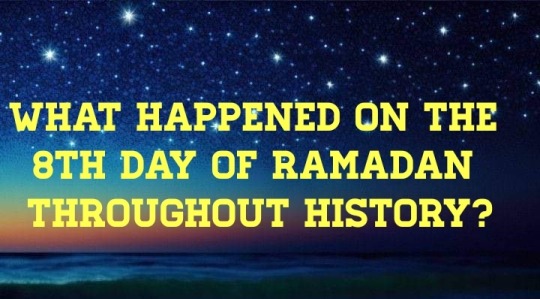
0 notes
Text
Kurulus Osman Actor Wiki, Death, Name, Age, Religion, Biography, Height, Cast & More

Kurulus Osman Actor Wiki:- Başımız Sağolsun is a well-known Turkey actor. He played the best-known role of an important soldier of Konya Palace. Currently, he is starring as Başımız Sağolsun in the history-based, adventure series Kuruluş: Osman, he is the character of this series. He has been the recipient of several accolades during his acting career.
Kurulus Osman Actor Wife Death
The news comes after devastating earthquakes rocked southern Turkey and northwestern Syria last week, died thousands and destroyed the country's infrastructure. More than 36,000 people have died across the country and hope of rescuing survivors is dwindling amid freezing conditions. Turkey's famous actor Başımız Sağolsun's wife also died in this earthquake. His wife's name was Zalan Tigris he was a musician, and she lost her life after being buried under the debris after a terrible earthquake.
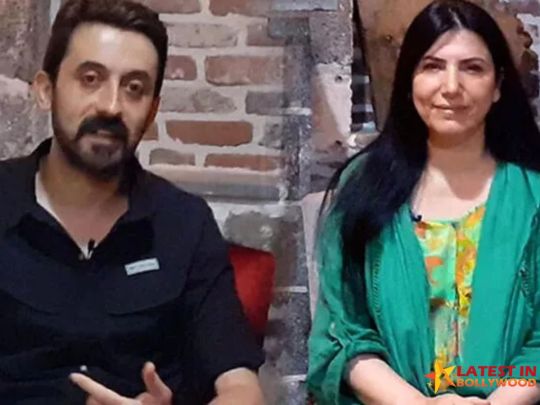
Kurulus Osman Actor Wife Death
Kurulus Osman Actor Name, Age
Kurulus Osman charater name is Başımız Sağolsun. His age is between 30 to 40 years old.
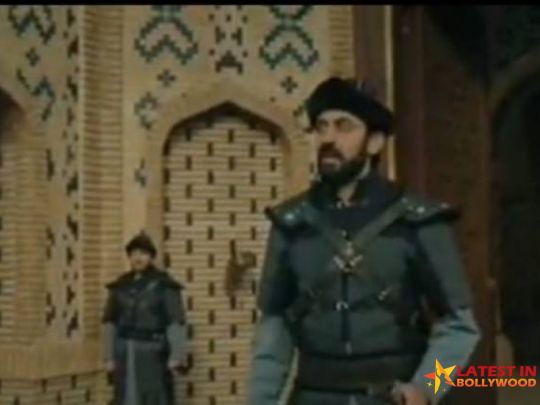
Kurulus Osman Actor Religion, Biography
Kurulus actor Başımız is a religious person but his religion is not added here. His wiki die is not found on the internet. That is why we don't have more information about him.
Kurulus Osman Actor Height, Weight
Konya actor Başımız's height is around 6 feet 0 inches and his weight is around 75 kg.
Kurulus Osman Cast
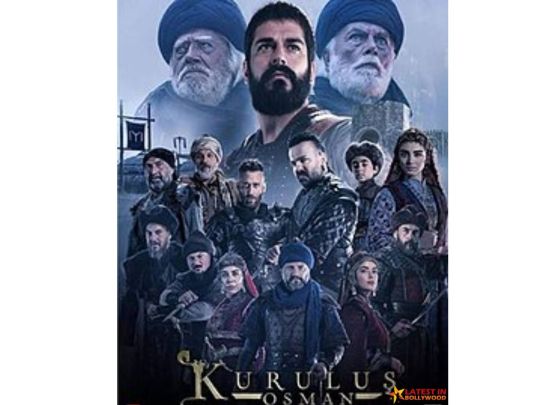
Burak Özçivit as a Osman Bey Ozge Torer as a Bala Hatun Tamer Yiğit as a Ertuğrul Bey Emre Basalak as a Gündüz Bey Ruzgar Aksöy as a Turgut Bey Ali Karagac as a Kulheran Alp Burak Yenilmez as a Kutan Alp Hamza Gunëysu as a Serhan Alp Kanbolat Görkem Arslan as a Savcı Bey Ragıp Savaş as a Dündar Bey Burak Çelik as a Göktuğ Alp Deniz Barut as a Valide Ismihan Sultan Yusuf Korkmaz as a Salguraģa Alp Ismail Alan as a Ismail Alp Hakkan Oncu as a Dumrel Alp Ozgu Rakar as a Ayaz Alp Buse Arslan as a Aygül Hatun Begum Cagla Taskin as a Ulgen Hatun Eren Hacısalihoğlu as a Batur Bey Hamit Erenturk as a Shahin Bey Çağkan Çulha as a Bahadır Bey Çağrı Şensoy as a Cerkutay Alp Nurettin Sönmez as a Bamsı Beyrek Yiğit Uçan as a Boran Alp Didem Balçın as a Selcan Hatun Seda Yıldız as a Şeyh Edebali Yildiz Cagri Atiksoy as a Malhun Hatun Emin Gürsoy as a Kumral Abdal Ipek Karapinar as a Frigg Read Also:- Kian Niroomand Wiki Read the full article
#kurulusosmanmarirealname#kurulusosmannetflix#kurulusosmanseason1#kurulusosmanseason2#kurulusosmanseason2cast#kurulusosmanseason3#kurulusosmanseason4#kurulusosmanseason4actress
1 note
·
View note